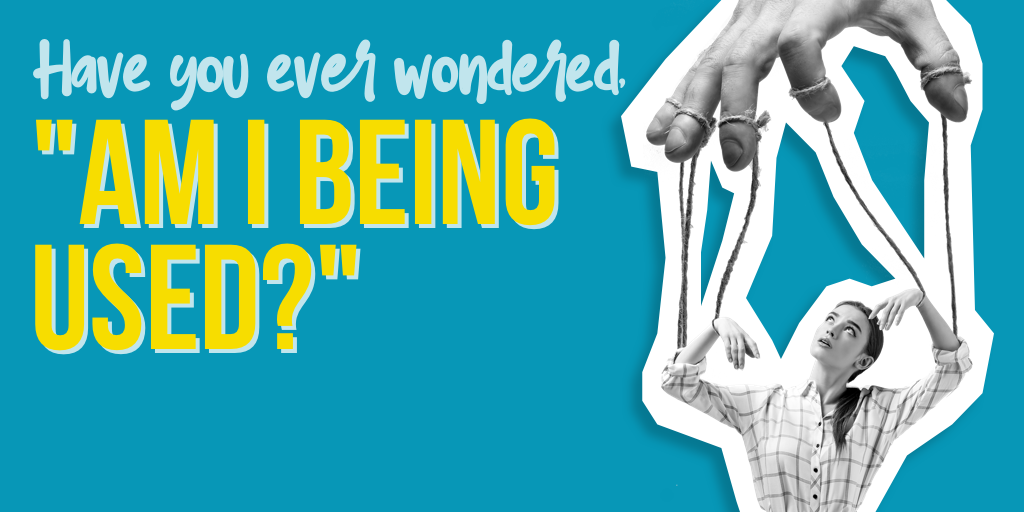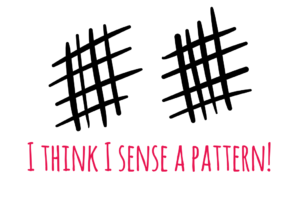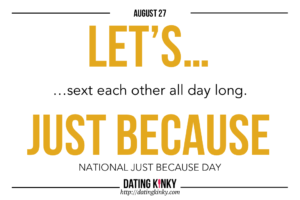Most of us have at one point or another.
And I’ll be clear, it’s hard to know the answer. I certainly can’t tell you. Because no one can really know another’s mind.
BUT, I can tell you why you might think you’re being used, what to do if you wonder if you’re being used, and how not to be used.
First, let’s talk about how people might use you…
How are you being used? You probably know the possibilities better than I, but here is a short list of common ways that people might use other people:
- For attention, someone to listen to them or admire them.
- For money or favors.
- For emotional support, they want someone to cheer them up or help them through emotional crises.
- For sex or physical intimacy.
- For access, they want to know the people you know or access the resources you have.
- For entertainment, they reach out when they’re bored or don’t have other things to do.
- For escape, they create a fantasy with you that is separate and different from their daily lives.
And so on.
Let me be clear: NONE of these things are necessarily bad. After all, if you’re getting what you need out of the relationship AND they are open and honest with you so that you can fully consent, then it’s perfectly cool.
However, I’m guessing that if that were the case, you’d never wonder if you’re being used, right?
Right.
Examine the feelings that lead to the question.
There are a certain range of feelings that trigger the question, “Am I being used?” Most have at least one foot solidly planted in resentment.
So, what is resentment? Well, some say it’s an admixture of feelings, generally disappointment, disgust, anger, and fear. Others consider it a mood.
In either case, it’s usually brought on by an experience of insult and/or injury:
- You feel imposed upon without consideration for your ability, preferences, or well-being.
- You feel that expectations have been placed upon you without negotiation or consent.
- You feel like once their needs or desires are met, you’re no longer interesting or useful.
- You feel like affection/friendship is offered only to get what they want.
- You feel like you are there for them, but they don’t make an effort to return the favor—or any favor.
Ultimately, when someone questions whether they are being used, it typically means the person feels they’ve been taken advantage of and their boundaries have been violated.
Ah! Boundaries.
Those of you who read me often know that’s one of my favorite concepts, and it’s no surprise to you that they come into play here.
Right? smiles
Right.
OK. So, we’ve talked about how you might be used, and why you might think you are being used. Let’s move on.
If you wonder if you are being used…
Follow the money.
No. Not that. Actually, “follow the resentment.”
When you feel like you might be being used, follow the feelings of resentment.
FIRST:
Target where you feel the resentment. Look at the list of how you might be being used, and figure out where your feelings are landing.
Let’s say I feel like I might be being used for sex and/or physical intimacy, based on a text message conversation.
SECOND:
Target the feelings. What do you feel? What emotions are making up your resentment?
- disappointment: one of your expectations is not being met; Which expectation(s)?
- fear: concern, apprehension that something good will not happen or that something bad will—get prepared; What am I fearing?
- hurt: loss, bigger expectation not being met; What have I lost? or What is missing that I want or need?
- disgust: revulsion or strong disapproval of something; What am I disgusted by?
- anger: an important personal rule has been violated; What rule has been broken?
For example, I’m disappointed because I expected that after sex, we would maintain our flirtatious texts and contact, and they went silent for a week and a half before reaching out, and then immediately asked about having sex again.
THIRD:
Use the answers to those questions to target which of your personal boundaries are being stomped all over.
My personal boundary is that I prefer to like and be friendly with people I have sex with. If the flirtatious texts had continued, I would have felt like we had a good connection that satisfied that need of mine, and my boundary would have been honored.
FOURTH:
Determine what to do to balance the situation. Generally, this will take one of two forms, possibly both:
- Communicate.
- Take action.
I usually communicate first. I state what I’m thinking and feeling, and give people the opportunity to change their behavior.
If they do, great. No further action needed. I’m good.
If they do not, I may communicate more (depending on how deeply in the connection/relationship we are), or just take action to prevent the situation from happening again.
Taking action might mean:
- Ending whatever “use” I might be to them (taking sex off the table).
- Changing my accessibility to them.
- Removing them from my life totally.
How they respond to the communication and/or the actions will tell me a lot about them as a person, and determine potential future interactions (if any).
How not to be used, ever.
Well, I can’t actually promise this, because people are gonna people, and none of us are omniscient.
But I can tell you how to reduce any potential effects so that you don’t feel resentment, and therefore get what you need out of the interactions before they go too far.
It’s pretty simple. There are only three steps:
- Set good boundaries.
- Maintain good boundaries.
- Live a ‘No Regrets’ life.
I talk a lot about setting and maintaining good boundaries. You can find a dozen or more writings in my archives, and probably thousands online by other writers from all walks of life.
No Regrets, though, that’s kind of my own jam. It all boils down to doing only what you feel is right, regardless of the outcome:
So, let’s use my example of being used for sex/physical intimacy. I know my boundary: I prefer to like and be friendly with people I have sex with.
How do I maintain this boundary?
Well, I spend time getting a feel for someone before I have sex with them.
Is it possible I could be wrong or they could be fooling me?
Of course it’s possible. And that’s where my ‘No Regrets’ life takes over. I take every step in a relationship knowing that if it were to end tomorrow, or 5 minutes from now, or a year from now, that I will have No Regrets.
How?
I ask myself a few questions (of course, they will change, depending on the situation):
- Do I think I will enjoy having sex with this person?
- Am I willing to find out after sex that they were using me in order to experience the sex?
- If it’s actually dull/boring sex, will I still feel good about taking that risk?
- Has their value in my life TO THIS POINT made it worth taking that opportunity?
And the final question (which is always the same): Is there any chance I will have regrets?
As long as I can answer “No” to the final question, I’m good to go. If there is a ‘yes,’ then I have to decide what that yes might be, and work through everything again, until I get the ‘no.’
It’s that simple.
And, as I often say, it’s simple, but not necessarily easy.
It takes practice to set boundaries. To maintain them. And it takes A LOT of practice to live a life of no regrets.
BUT, if you can do this, you will never be used, at least not in any detrimental way, because YOU will have already gotten enough of what you want and need to make the risk both worthwhile and affordable.
So, used or not, you’ll be OK. Maybe even better than OK. Strong, confident in your choices, and without regrets.
What are your thoughts?
Have you ever been used? Have you ever used someone? How do you see strong healthy boundaries as a shield against resentment and people using you against your will?
Have you ever tried creating a No Regrets life for yourself? How did it work? What went right and what went wrong?










